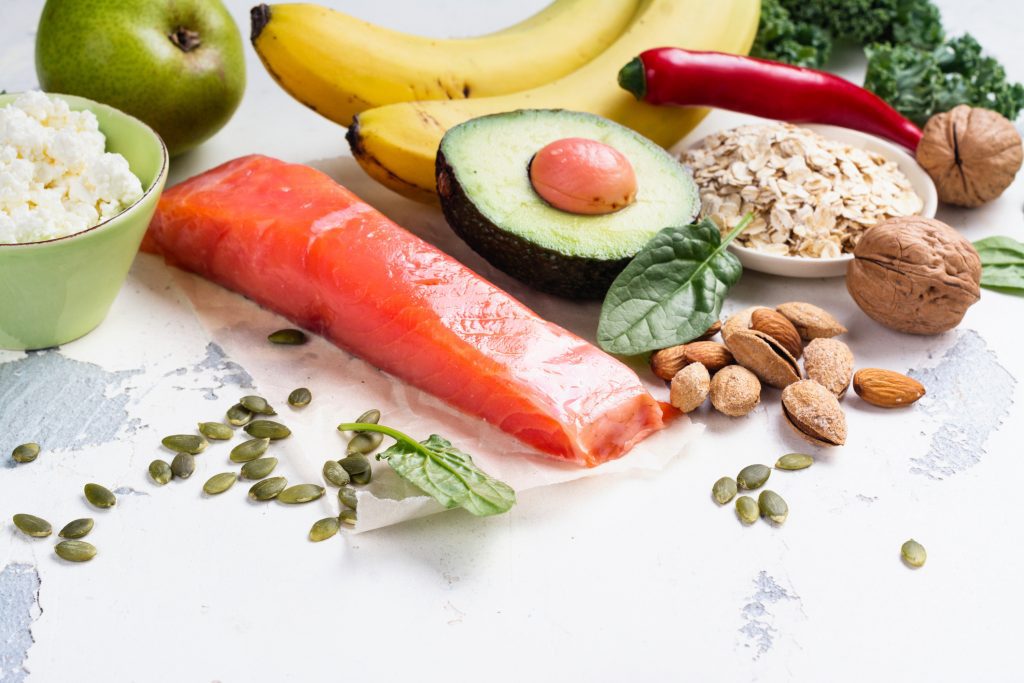Is keto worth a go?

As far as diets go, the ketogenic variety has proved more popular than most; its low-calorie, weight management promise proving attainable and stickable for large groups of keto-philes.
The core premise is weight control, but cleaner and often plant-based healthier eating also drive keto’s popularity. Beyond that, keto diets have been linked with controlling chronic diseases like type-2 diabetes and boosting cognitive health among other benefits.
‘Keto diet’ Google searches blow all others out of the dieting water and foods that fall within the high-fat, moderate-protein and low-carbohydrate ketogenic regimen have quickly become a multi-billion dollar industry globally.
Keto-friendly food launches jumped 170% in 2020, according to New Nutrition Business. Keto-focused online stores are emerging; supermarkets in some countries have keto sections and UK-based health food retailers like Holland & Barrett have keto-devoted sections (117 products as of February 2021).
But what about endurance athletes? What would a bunch of calorie crushers like cyclists and runners and triathletes want with what is essentially an ultra-low calorie diet? Especially as the endurance athlete population is not the general population: athletes tend to have less (over)weight and associated chronic health issues.
So is keto a no-go?
If you’re competing in regular distance events or training hard, dedicated keto probably is rarely adequate. You need those carbs to perform.
If you are looking to shed a few kilos, say in the off-season when efforts might be less than maximal, evidence suggests following a ketogenic diet can deliver for a majority of folks, sporting or otherwise.
Going the distance: Keto-adapted bodies deliver?
But the real interest for endurance athletes lies in the dynamics of performance when the body goes ketogenic.
This is where the ketogenic diet gets its name from – because the liver synthesises an alternative energy form called ketones when the body is carb-depleted; a kind of reserve fuel. So a body in a full ketogenic state may be running off a mixture of fat and ketones, hence its reputation as a force for weight loss.
A keto-adapted body is essentially a fat burning-adapted body that can offer real performance benefits, especially for longer efforts.
In this way keto dieting is a means to synch with a broader understanding of the function and value of fat and ketones as energy sources in sports nutrition science, and in particular endurance sports.
As The Draft discussed here, in-training fasting and carb-restriction provokes the ketogenic fat-burning state and acclimatises the body to it. This can become a serious competitive advantage in longer sorties like full triathlons or ironmans or ultra-distance cycling or running events where carb replenishment can quickly become a disastrous carb crisis toward the backend of races.
Keto-adapted endurance benefits
Consider the math: Most bodies store something like 2000 calories worth of carbs and trained endurance athletes can typically process about 240-360 calories worth of simple sugars per hour while burning something like 700 calories an hour.
During a 13-hour ironman that means an athlete might have about 7000 carb calories available while burning 9000 or so – a pretty significant energy deficit which has to be funded from somewhere – which is when the body will go rogue and switch to alt-sources like ketones and fat – the body will even chew through muscle if it gets desperate enough. (The survival instinct doesn’t discriminate in the end.)
For the uninitiated this in vivo biochemical fuel shift – otherwise known as bonking or hitting the wall – is usually disastrous: performance goals not met amid torturous minutes or hours grovelling to a desolate and probably half-packed-up finishing area. Ouch.
Being keto-adapted means you can more efficiently tap into the reservoir of 100,000 calories worth of fat even highly trained, lean bodies possess when the calorific push comes to shove.
Recent studies have shown optimised fat-adaptation methods have shifted fat oxidisation thresholds from 0.3-0.5g/minute to 1.5-2g/minute in some athletes. Refining ketogenic states play a part in boosting these fat oxidisation rates. Again, pretty significant.
Exogenous ketone esters
For this reason, ketone ester products have become popular among some pro cycling teams.
This is known as exogenous ketone ester supplementation which some studies have shown can preserve glycogen, promote fat burning and deliver performance and recovery gains in endurance athletes.
Some research has found a trained, keto-adapted body can better process exogenous ketones than a more neutral body.
Broader ketogenic diet benefits
The ketogenic diet has been linked to other benefits that could more holistically help endurance athletes including improved energy levels; heightened focus and concentration; better sleep; increased metabolism and improved blood sugar modulation.
While data is still being gathered about the long-term effects of keto diets, some research suggests the process of keto-adapting may strain the immune system short-term, but strengthen it post-adaptation.
Such effects may be different in the case of athletes utilising keto dieting in relatively short training bouts.
Is keto worth a go? If you’re an athlete who likes to go loooong, getting into a ketogenic state of mind – and body – could be an ally, at least some of the time.







